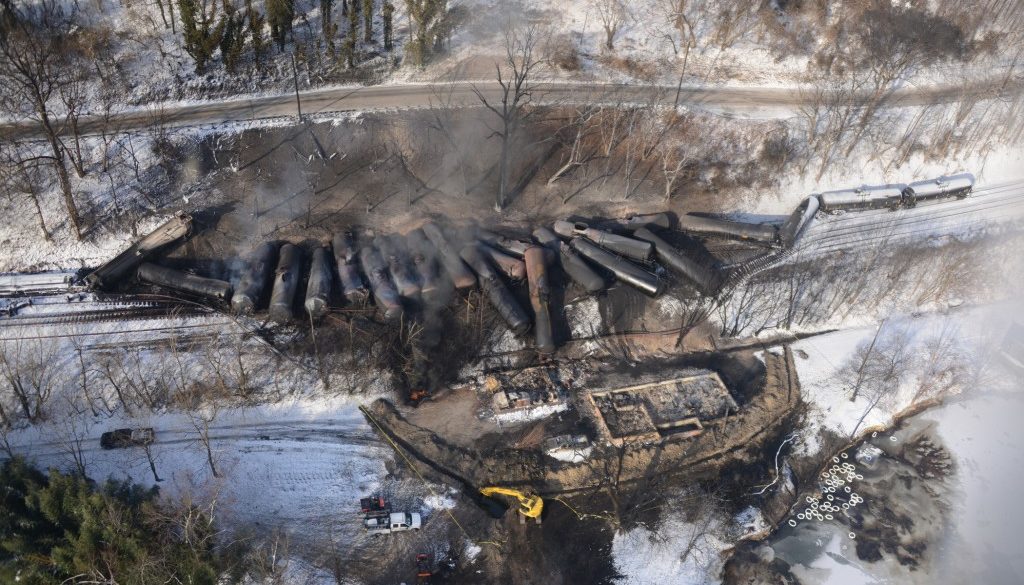Two Years After Quebec Disaster, Thousands Rally to #StopOilTrains
By Amanda Frank, Center for Effective Government
Two years ago this week, a 74-car freight train derailed in a Quebec city, killing 47 people. The massive explosion leveled nearly half of the city’s downtown. Since then, we’ve seen at least ten significant oil train accidents across North America, along with more than 200 leaks and other minor incidents in the U.S. alone.
It’s sheer luck that none of the derailments since Quebec have resulted in widespread death and destruction. But oil trains run through the heart of hundreds of towns and cities, and it’s only a matter of time before we see another devastating incident similar to the Quebec tragedy.
This week, communities across North America are rallying to stop crude-by-rail before the next accident occurs.
Several environmental and public interest organizations have come together to host the Stop Oil Trains Week of Action. This includes more than 100 events in the U.S. and Canada, including press conferences, community forums, and protests.
You can view this map to see if any events are being held in your community. If you don’t see one, consider creating your own event using this toolkit from ForestEthics.
Communities are taking action because the companies and federal agencies responsible for ensuring trains are safe have been slow to respond.
In May, the U.S. Pipeline and Hazardous Materials Safety Administration (PHMSA) and the Federal Railroad Administration (FRA) released a long-awaited rule to improve the safety of trains carrying hazardous materials, including Bakken crude oil. Beginning Oct. 1, all new tank cars must have shells that are at least 9/16 of an inch thick in order to make them less susceptible to puncturing. Existing cars that do not meet this standard must be retrofitted within two to ten years, depending on car type.
While tougher standards are welcome, the timeline for phase-out is too slow. Some dangerous cars would remain in use for up to ten years.
Similarly, the rule requires rail companies to adopt advanced braking systems that decrease stopping distances, but companies have been given six to eight years to adopt this technology.
With significant oil train derailments occurring every two or three months, we cannot afford this long delay in adopting these improvements.
Rail companies are enjoying a surge in profits and can afford stronger rail cars and upgraded safety technology.
The volume of crude oil shipped by rail has increased more than 4,000 percent since 2008, contributing to a steady rise in profits for major railroad companies. With this new business comes an increased risk of accidents, and companies should be using some of their profits to invest in the technology available now that can prevent and mitigate disasters.

Advanced safety technology has been available for decades. But rail companies continue to fight against adopting them, even when federally mandated. Companies have a responsibility to take every possible measure to avoid another devastating derailment.
For more resources and information on how to get involved, visit ForestEthics and the Coalition for Sensible Safeguards.

